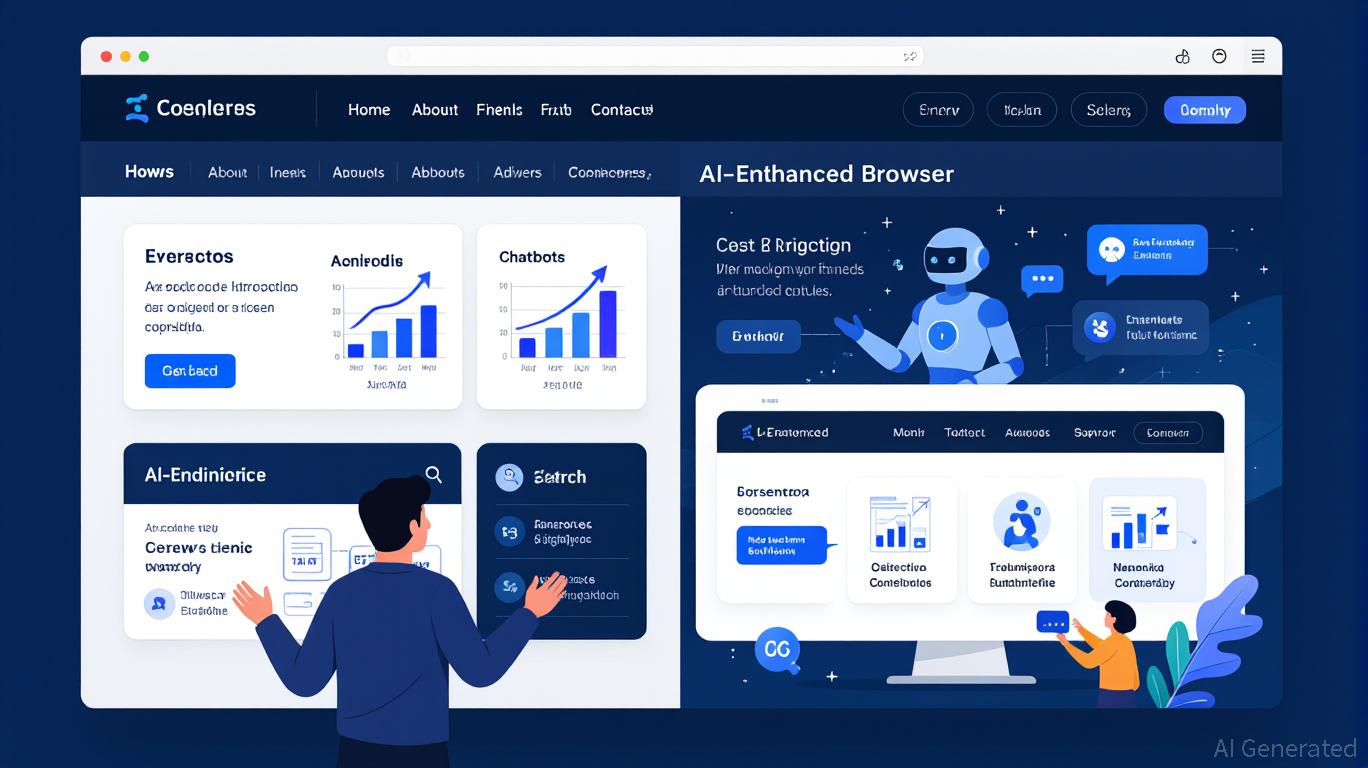
The recent $34.5 billion unsolicited bid by Perplexity AI to acquire Google’s Chrome browser has ignited a firestorm in the tech sector, signaling a pivotal shift in the AI-driven search and browser wars. This move, framed against the backdrop of a landmark U.S. antitrust case against Google, underscores the growing strategic value of web browsers as gateways to user data and AI dominance. For investors, the implications are profound: ownership of Chrome could redefine market dynamics, reshape competition, and unlock new avenues for AI innovation.
The Browser as a Data Goldmine
Web browsers are no longer mere tools for navigation; they are the primary interface through which users interact with the internet. Chrome, with its 3 billion users, is a treasure trove of search behavior, click patterns, and contextual data—critical inputs for training AI models. Perplexity’s bid reflects a recognition that control over this data pipeline is essential for competing in the next phase of AI development. By acquiring Chrome, Perplexity could integrate its AI-powered search capabilities directly into the browser, creating a closed-loop system where user interactions fuel model improvements.
Google’s stock has historically been resilient to antitrust pressures, but the DOJ’s push for Chrome’s divestiture introduces a new variable. If forced to sell, Alphabet (GOOGL) could face a significant loss of its most valuable asset, potentially impacting its advertising revenue and AI ambitions. Investors should monitor the stock’s reaction to the August 2025 court ruling, as a forced sale could trigger volatility.
Regulatory Tailwinds and Market Opportunities
The U.S. antitrust case against Google has created a regulatory vacuum that Perplexity and others are eager to fill. The DOJ’s proposed remedies, including Chrome’s potential sale, align with broader efforts to curb monopolistic practices in tech. Perplexity’s all-cash offer—funded by unnamed investment funds—avoids equity dilution and antitrust complications, making it a politically palatable solution.
Perplexity’s valuation has surged to $18 billion, fueled by $100 million in recent funding. This growth mirrors the rising interest in AI-driven browsers, with competitors like OpenAI (parent of ChatGPT) and DuckDuckGo also vying for a slice of the market. OpenAI’s rumored AI browser, built on Chromium, and DuckDuckGo’s $50 billion Chrome valuation estimate highlight the sector’s explosive potential.
Key Players and Investment Opportunities
Perplexity AI: The startup’s Comet browser, which emphasizes privacy and AI task automation, positions it as a direct challenger to Google and Microsoft. If the Chrome acquisition succeeds, Perplexity could leverage its user base to dominate AI search. OpenAI: With its own AI browser in development and a history of hiring Google Chrome veterans, OpenAI is a dark horse in the race. Its ability to monetize user data through AI agents could redefine browser economics. DuckDuckGo: While smaller in scale, DuckDuckGo’s privacy-first approach and growing user base make it a compelling long-term play, especially if regulatory trends favor decentralized data models. Alphabet (GOOGL): A forced sale of Chrome could unlock value for Alphabet, but the company’s legal battle to retain control suggests short-term uncertainty. Investors should weigh the risk of regulatory intervention against its long-term AI strategy.
Risks and Considerations
Regulatory Uncertainty: The outcome of Judge Amit Mehta’s ruling on antitrust remedies is critical. A forced sale could accelerate AI browser adoption, while a rejection would leave Google unscathed. Financing Challenges: Perplexity’s reliance on external funding for the $34.5 billion bid introduces execution risk. A failed acquisition could dampen investor sentiment. Competition: OpenAI, Yahoo, and Apollo Global Management are also in the mix, increasing the likelihood of a bidding war that could drive Chrome’s valuation higher.
Strategic Investment Thesis
For investors, the Chrome bid represents a high-stakes bet on the future of AI. Browsers are evolving into AI platforms, and ownership of a dominant browser could confer first-mover advantages in areas like personalized search, task automation, and data monetization. Perplexity’s all-cash structure and regulatory-friendly approach make it a compelling candidate, but the broader sector—encompassing AI-driven browsers and privacy-focused alternatives—offers diverse opportunities.
In the short term, volatility is inevitable as the antitrust case unfolds. However, the long-term trajectory is clear: AI will increasingly mediate user interactions with the web, and browsers will be the battleground. Investors should prioritize companies with strong AI integration, regulatory agility, and scalable data models.
Conclusion
Perplexity’s Chrome bid is more than a corporate maneuver—it’s a harbinger of structural change in the tech sector. As AI reshapes how we access and interact with information, browsers will become the new operating systems. For those willing to navigate the regulatory and competitive turbulence, the rewards could be transformative. The key lies in identifying the players best positioned to harness the browser-AI nexus and betting on their ability to redefine the digital landscape.


